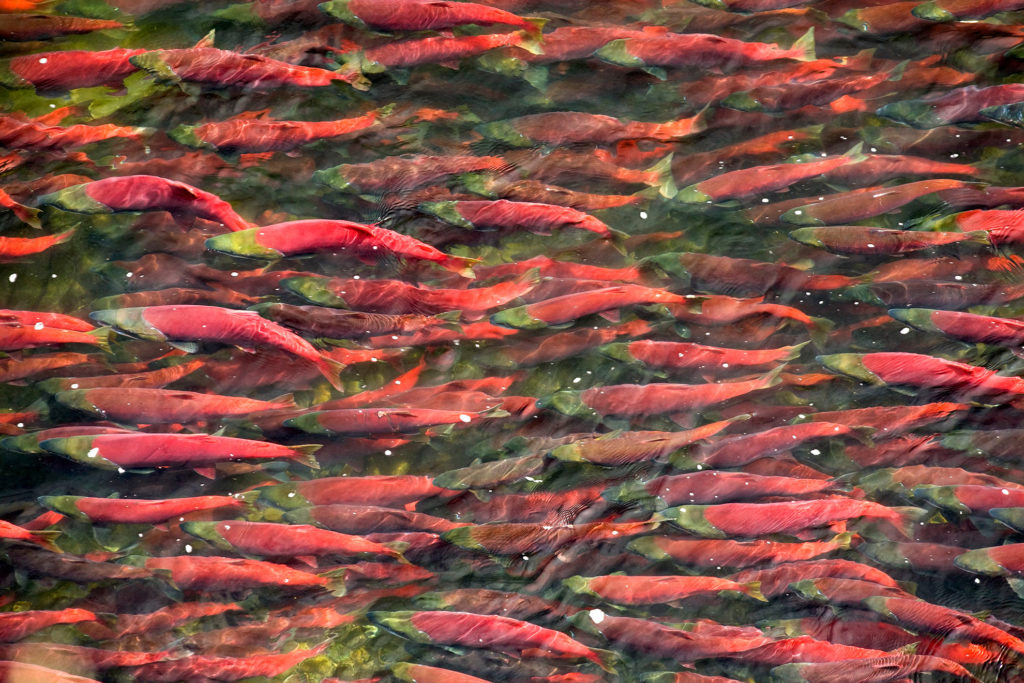Last week, the U.S. Environmental Protection Agency announced its plan to protect Alaska’s Bristol Bay from the proposed Pebble Mine, setting the stage for lasting protection for the largest and most productive wild salmon fishery on earth.

The EPA’s plan, known as the Proposed Determination, will prohibit and restrict mine waste disposal in Bristol Bay’s headwaters based on the EPA’s authority under Section 404(c) of the Clean Water Act. Specifically, it would apply to certain waters in the South Fork Koktuli River, North Fork Koktuli River and Upper Talarik Creek watersheds in Bristol Bay, and do two things:
- Prohibit the discharge of dredge or fill material associated with mining the Pebble Deposit, as defined by the mine plan submitted to the EPA by the Pebble Limited Partnership in 2020.
- Restrict discharges of dredged or fill materials associated with future plans to mine the Pebble deposit if the effects of such discharge are similar or greater in nature and magnitude to the adverse effects of the 2020 Mine Plan.
The EPA is currently taking public comment and hosting public hearings on the proposal, with comments due July 5th.
This is a momentous time in the two-decade effort to safeguard Bristol Bay. Lasting protection for Bristol Bay is desperately needed to protect salmon and the communities that depend on them. A scientific review conducted by the U.S. Army Corps of Engineers determined that mining the Pebble deposit would likely result in “significant degradation” to aquatic resources and that it is “contrary to the public interest.”
Bristol Bay is an area of unparalleled ecological value. It supports the world’s largest and most productive wild salmon fishery, with more than 75 million (!) wild salmon expected to return in 2022. The salmon fishery is an economic powerhouse, generating $2.2 billion in annual economic activity and sustaining 15,000 annual jobs. It produces roughly half of the world’s commercial supply of wild sockeye salmon—feeding Alaska, America and the world with a healthy, sustainable source of seafood. Its salmon are central to the lives, cultures and livelihoods of the many Alaska Native communities that have thrived in Bristol Bay for millennia.
Bristol Bay Tribes first petitioned the EPA to use its 404(c) Clean Water Act authority in 2010, which triggered an extensive scientific analysis of the potential harm of large-scale mining to the Bristol Bay watershed. In 2014, the EPA issued a Proposed Determination to limit mine waste disposal in Bristol Bay headwaters, but it was never finalized. The Pebble Limited Partnership challenged it in court, delaying its application for years. The EPA ultimately withdrew the 2014 Proposed Determination under the Trump Administration in 2019.
Bristol Bay Tribes, commercial fishermen and conservation groups (including Earthworks) filed a legal challenge against the 2019 withdrawal. In 2021, a federal court reinstated the 2014 Proposed Determination. Now, the EPA has made some changes to the initial Proposed Determination, leading us to the Proposed Determination that was released last week.
What’s Next for Bristol Bay?
After the July 5th deadline for public comments, the EPA will decide whether to issue a Recommended Determination and then a Final Determination.
Earthworks is proud to stand with the people of Bristol Bay in support of lasting protection for this remarkable place. We urge the EPA to finalize 404(c) protections before the end of the year.
